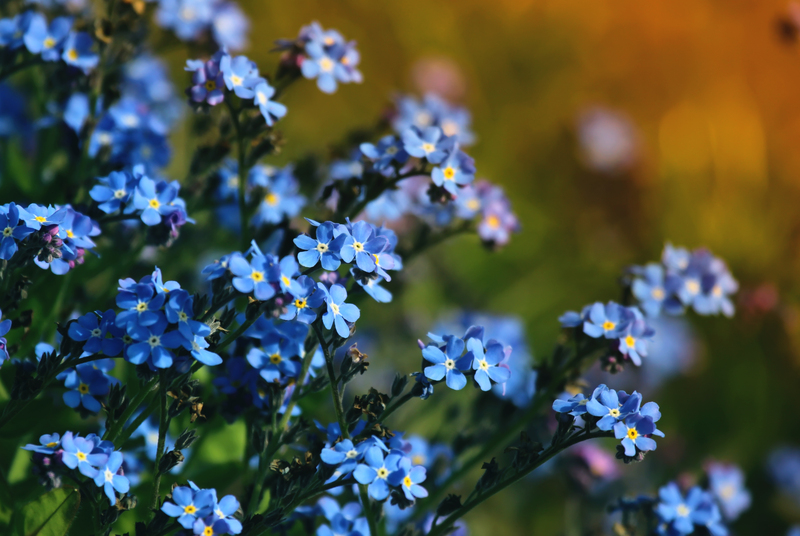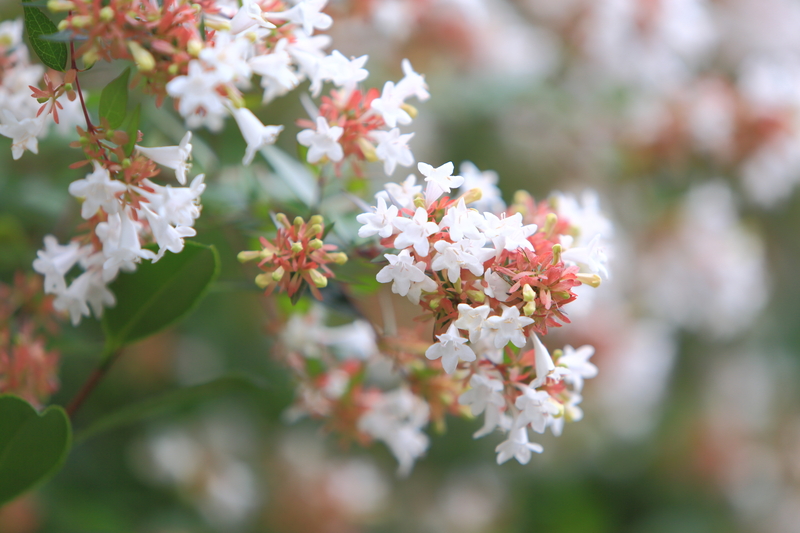Start on the right foot with these 9 foundational tips for beginner gardeners
Posted on 31/05/2025
Start on the Right Foot: 9 Foundational Tips for Beginner Gardeners
Are you dreaming of lush green plants and vibrant blooms right outside your window? Gardening is a fulfilling hobby that can bring beauty, fresh produce, and serenity to your daily life. However, starting a garden can feel overwhelming if you're new to the process. With the right beginner gardener tips and practical advice, anyone can develop a green thumb. Read on for nine foundational gardening tips tailored specifically for beginners looking to start their gardening journey on the right foot.

Why Start Gardening? The Incredible Benefits
- Health and Wellness: Gardening is proven to relieve stress, promote mindfulness, and provide gentle exercise.
- Fresh Produce: Grow your own fruits, vegetables, or herbs for fresher, tastier meals at home.
- Home Aesthetics: Bring natural beauty and vibrant colors to your outdoor or indoor space.
- Environmental Impact: Gardens increase biodiversity, help pollinators, and can reduce your carbon footprint.
Now, let's dig into the best foundational gardening tips every beginner should know.
1. Assess Your Space and Sunlight
Every successful garden starts with an understanding of your environment. Whether you have a small balcony, a backyard, or just a sunny windowsill, the key is to assess your available space. Take note of:
- Size of your gardening area
- Sunlight patterns: How many hours of direct sunlight does the area get daily?
- Nearby structures: Trees, fences, and buildings can create shade or provide protection from wind.
Pro Tip: Most vegetables and flowers need at least six hours of sunlight per day. South or west-facing spaces are generally best for sun-loving plants.
Sun Map: Your Secret Tool
Spend a day observing the light in your chosen spot. Note the sunny and shaded periods, and use this information to select the best beginner plants for your unique garden.
2. Know Your Soil
Soil is the foundation of every garden. Even if you have the perfect space, soil type and quality can significantly impact your gardening success.
- Clay soils hold nutrients but drain poorly.
- Sandy soils drain well but may lack nutrients.
- Loam soils are ideal, balancing drainage, texture, and nutrients.
Test your soil with a basic kit from your local garden center, or simply squeeze a handful of moist soil in your palm:
- If it clumps and feels sticky, it's likely clay-based.
- If it falls apart, it's sandy.
- If it holds together loosely, it's loam--the gold standard!
Amend your soil as needed with compost or organic matter to create a healthy growing environment for your plants.
3. Choose the Right Starter Plants
As a beginner gardener, resist the temptation to grow exotic or challenging plants right away. Instead, opt for easy-care varieties that have a high chance of thriving:
- Herbs: Basil, rosemary, chives, mint
- Vegetables: Lettuce, radishes, green beans, zucchini
- Flowers: Marigolds, sunflowers, nasturtiums, pansies
These resilient plants can tolerate minor mistakes and still reward you with healthy growth and quick results, building your confidence.
Local is Best
Visit nearby garden centers for advice on plants well-suited to your climate. Native or local species are often the easiest to grow and most resistant to local pests and diseases.
4. Start Small and Expand Gradually
It's exciting to envision a large, flourishing garden, but beginners often overestimate the time and effort involved. Begin with a manageable space:
- A few containers on your porch or windowsill
- One raised bed
- A small garden patch (4'x4' is a great size for starters)
This approach lets you focus on learning the basics, and as your skills (and confidence) grow, you can easily add more plants or expand your garden area.
5. Invest in Quality Tools and Supplies
Having the right tools makes gardening more enjoyable and efficient. For a beginner gardener, you won't need much to start:
- Hand trowel and fork: For planting and soil preparation
- Gloves: Protect your hands from thorns and dirt
- Watering can or hose: For even watering
- Pruners: To trim plants and harvest produce
- Garden spade: For digging and soil mixing
Invest in quality over quantity. Well-made tools last longer and make physical tasks easier.
6. Water Wisely
Understanding how and when to water your garden is crucial. Overwatering and underwatering are two of the most common mistakes made by novice gardeners.
- Check soil moisture by sticking your finger one inch below the surface. If it feels dry, it's time to water.
- Water deeply, not frequently: This encourages roots to grow deeply and strengthens plants.
- Morning is best: Watering in the early hours reduces evaporation and helps prevent disease.
- Avoid wetting leaves: Direct water at soil level to prevent fungal growth.
Tip: Group plants with similar water needs together. This makes watering more efficient and prevents over- or under-watering certain plants.
7. Feed Your Plants the Right Way
Plants need nutrients to thrive. While some beginner gardeners rely solely on potting soil or the nutrients in the ground, it's important to occasionally replenish their food supply:
- Compost: Adds organic matter and improves soil health.
- Organic fertilizers: Release nutrients slowly and are safe for the environment.
- Read labels: Each plant type may have different nutrient requirements. Follow package instructions to avoid over-fertilizing.
Healthy, well-fed plants are more resistant to pests and diseases--a win-win for your garden!
8. Monitor for Pests and Problems
Gardens are not immune to pests and diseases, but early detection can save your plants. Make it a habit to inspect your plants regularly:
- Look for chewed leaves, discolored foliage, or unusual spots.
- Check under leaves and around stems for insects or eggs.
- Remove any affected leaves or pests by hand, or use an organic insecticidal soap.
Integrated Pest Management (IPM) combines observation, prevention, and treatment while minimizing impacts on the environment--perfect for the environmentally conscious gardener.
9. Keep a Garden Journal
A garden journal is an invaluable tool for every beginner gardener. Use it to:
- Record which plants you grew, when, and where
- Track watering, feeding, and weather patterns
- Note successes and challenges
By documenting your journey, you'll learn from your mistakes, repeat your successes, and watch your progress unfold season after season.
Beginner Gardening: Extra Tips for a Flourishing Start
- Patience is key: Plants take time to grow. Don't be discouraged by slow results.
- Ask for help: Local garden centers, clubs, and online communities are friendly sources of advice.
- Label your plants: Especially when starting from seeds--young plants can look very similar.
- Celebrate small wins: Every sprout and bloom is a step toward becoming a seasoned gardener.
The Most Common Beginner Gardener Mistakes and How to Avoid Them
Skipping research: Always check plant tags for light, water, and spacing requirements before purchase or planting.
Overcrowding: Give your plants enough room to breathe and grow.
Neglecting mulch: Mulching helps retain moisture, suppresses weeds, and keeps roots cool.
Inconsistent care: Establish a regular routine for watering, feeding, and checking your plants.
Building Your Gardening Confidence
Every gardener--no matter how experienced--faces challenges and learns something new each season. The key is to start simple, stay curious, and enjoy every stage of the process. With these 9 foundational gardening tips, you're already on the right foot.
Ready to Grow?
Whether your garden is a collection of pots on a balcony or a backyard project, the journey will fill your life with beauty and wonder. Remember, even the greatest gardeners started as beginners--nurture your plants, and your gardening skills will bloom right alongside them!
Start on the right foot with your new garden, and watch your thumb turn greener day by day!

Frequently Asked Questions for Beginner Gardeners
- What's the best time of year to start a garden?
Spring and fall are typically ideal, but container gardens can be started almost any time with the right care. - How often should I water my garden?
Depends on the plant and soil; most gardens need water when the top inch of soil feels dry. - Can I use kitchen scraps in my garden?
Yes! Composting kitchen scraps is a fantastic way to enrich your soil and reduce waste.
Conclusion: Plant the Seeds of Success
Starting a garden is a rewarding project that enriches both your environment and your well-being. By following these nine foundational tips for beginner gardeners, you'll avoid common pitfalls and create a thriving, beautiful green space. Embrace your gardening adventure--one plant, one day, and one lesson at a time!
Latest Posts
Snow-Ready Gardens: Expert Tips for Plant Winter Protection
Strengthening Your Garden's Defense Against Weather
Reimagining Nature through Vertical Gardening

